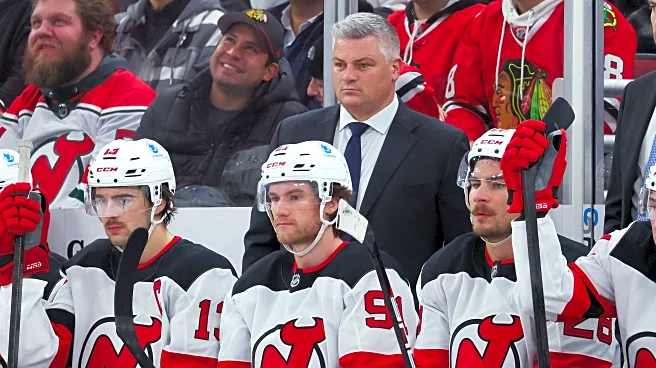Rapid Read • 7 min read
Four major truck manufacturers, Daimler Truck North America, International Motors, Paccar Inc., and Volvo Group North America, have filed a federal lawsuit against the California Air Resources Board (CALB). The lawsuit challenges CALB's enforcement of CO2 emissions standards, which the truck makers argue are pre-empted by federal law following a reversal of a waiver by President Trump. This waiver, initially granted during the Biden administration, allowed California to set its own emissions standards. The truck makers claim that the conflicting guidance from the federal government and CALB has caused them irreparable harm, as they are caught between adhering to state regulations and federal directives that deem those regulations unlawful.
AD
The lawsuit highlights the ongoing tension between state and federal regulations, particularly in the context of environmental standards. The outcome of this legal battle could have significant implications for the trucking industry, potentially affecting compliance costs and operational strategies. If the truck makers succeed, it could limit California's ability to enforce stricter emissions standards than those set federally, impacting the state's environmental policies. Conversely, a ruling in favor of CALB could reinforce states' rights to impose their own environmental regulations, potentially leading to a patchwork of standards across the country. This case underscores the broader debate over state versus federal authority in setting environmental policy.
The court's decision will be closely watched by industry stakeholders and policymakers. A ruling in favor of the truck manufacturers could prompt other states to reconsider their emissions standards, while a decision supporting CALB might encourage more states to pursue independent environmental regulations. The case could also influence future federal policy decisions regarding state waivers and emissions standards.
AD
More Stories You Might Enjoy











